45 how does zero coupon bond work
Understanding Zero Coupon Bonds - Part One - The Balance Zero coupon bonds generally come in maturities from one to 40 years. The U.S. Treasury issues range from six months to 30 years and are the most popular ones, along with municipalities and corporations. 1. Here are some general characteristics of zero coupon bonds: You must pay tax on interest annually even though you don't receive it until ... Zero Coupon Bond Funds: What Are They? - thebalancemoney.com A zero coupon bond is a bond that doesn't offer interest payments but sells at a discount—a price lower than its face value. 1 The bondholder doesn't get paid while they own the bond, but when the bond matures, they will be repaid the full face value. Zero coupon bond funds are funds that hold these types of bonds.
› terms › zZero-Coupon Bond Definition - Investopedia A zero-coupon bond is a debt security instrument that does not pay interest. Zero-coupon bonds trade at deep discounts, offering full face value (par) profits at maturity. The difference between...
How does zero coupon bond work
EOF Zero-Coupon Bonds - Accounting Hub The formula to calculate the market value of the zero-coupon bond is: Price = M / (1+r) n Where M = face value or maturity value of the bond R = required rate of interest N = number of years Suppose a bond issuer needs to issue a zero-coupon bond with a face value of $10,000 with 10 years of maturity. The investors' expected rate of return is 5%. Zero-Coupon Bond - Definition, How It Works, Formula A zero-coupon bond is a bond that pays no interest. The bond trades at a discount to its face value. Reinvestment risk is not relevant for zero-coupon bonds, but interest rate risk is relevant for the bonds. Understanding Zero-Coupon Bonds As a zero-coupon bond does not pay periodic coupons, the bond trades at a discount to its face value.
How does zero coupon bond work. dqydj.com › bond-convexity-calculatorBond Convexity Calculator: Estimate a Bond's Yield ... - DQYDJ Bond Price vs. Yield estimate for the current bond. Zero Coupon Bonds. In the duration calculator, I explained that a zero coupon bond's duration is equal to its years to maturity. However, it does have a modified (dollar) duration and convexity. Zero Coupon Bond Convexity Formula. The formula for convexity of a zero coupon bond is: What is a Zero-Coupon Bond? - Robinhood A zero-coupon bond is different from other bonds in that it doesn't result in recurring interest income for the bondholder. Instead, the owner buys the bond at a discount. Then when the bond reaches maturity, the profit for the investor is the difference between the purchase price of the bond and its face value (aka par value). What are Zero-Coupon Bonds? (Definition, Formula, Example, Advantages ... A zero-coupon bond is a financial instrument that does not render interest. They normally trade at high discounts, and offer full face par value, at the time of maturity. The spread between the purchase price of the bond and the price that the bondholder receives at maturity is described as the profit of the bondholder. Zero Coupon Bond | Investor.gov Zero coupon bonds are bonds that do not pay interest during the life of the bonds. Instead, investors buy zero coupon bonds at a deep discount from their face value, which is the amount the investor will receive when the bond "matures" or comes due. The maturity dates on zero coupon bonds are usually long-term—many don't mature for ten ...
What Is a Zero-Coupon Bond? Definition, Characteristics & Example Typically, the following formula is used to calculate the sale price of a zero-coupon bond based on its face value and maturity date. Zero-Coupon Bond Price Formula Sale Price = FV / (1 + IR) N... Zero Coupon Bond - Explained - The Business Professor, LLC How Does a Zero-Coupon Bond Work? Bonds are methods for companies to raise capital. Bond purchasers are lenders to the company. The company is the debtor. Most bonds pay interest (a coupon) annually or semi-annually throughout the duration of the bond. › calcs › bondsBond Yield to Maturity Calculator for Comparing Bonds Let's say you buy a 10 year $1000 bond with a 5% coupon. You hold that bond for the next few years collecting your $50 of annual interest. During that time, interest rates fall, and a comparable 10 year $1000 bond now carries a 4% coupon. Your original bond is now a much more valuable commodity, and it can be sold at a premium on the open market. › what-is-bond-valuationWhat Is Bond Valuation? - The Balance Oct 22, 2021 · U.S. Treasury savings bonds are zero-coupon bonds that are sometimes used to help pay for college. A parent or grandparent may purchase a savings bond with a 10-year maturity and a face value of $20,000 for $16,000, for example. If the bond is held for the full 10 years, the bondholder receives $20,000 once it matures.
The One-Minute Guide to Zero Coupon Bonds | FINRA.org Instead of getting interest payments, with a zero you buy the bond at a discount from the face value of the bond, and are paid the face amount when the bond matures. For example, you might pay $3,500 to purchase a 20-year zero-coupon bond with a face value of $10,000. After 20 years, the issuer of the bond pays you $10,000. Coupon Bond - Guide, Examples, How Coupon Bonds Work A coupon bond is a type of bond that includes attached coupons and pays periodic (typically annual or semi-annual) interest payments during its lifetime and its par value at maturity. These bonds come with a coupon rate, which refers to the bond's yield at the date of issuance. Bonds that have higher coupon rates offer investors higher yields ... › maturity-date-series-eeHow Long Does It Take for Series EE Bonds To Mature? May 25, 2022 · Savings bonds work as zero-coupon bonds. Bond coupons , or interest payments, are added to a bond's principal value rather than paid out periodically. The difference in maturity dates for these bonds results from the differing rates of interest built into each Series EE bond when it's issued. What Is a Zero-Coupon Bond? - The Motley Fool Zero-coupon bonds compensate for not paying any interest over the life of the bond by being available for far less than face value. Put another way, without a deep discount, zero-coupon bonds ...
How Do Zero Coupon Bonds Work? - SmartAsset A zero coupon bond doesn't pay interest, but it could pay off for your portfolio. Choosing between the many different types of bonds may require a plan for your broader investments. A zero coupon bond often requires less money up front than other bonds. Yet zero coupon bonds still carry some of risk and can still be influenced by interest rates.
› articles › investingAdvantages and Risks of Zero Coupon Treasury Bonds - Investopedia Banks and brokerage firms can also create zero-coupon bonds. These entities take a regular bond and remove the coupon to create a pair of new securities. This process is often referred to as...
Zero-Coupon Bond Yield - Harbourfront Technologies A zero-coupon bond with a face value of $1,000 has five years to maturity. The current price of the bond is $900 in the market. Therefore, the following formula can help in the calculation of the zero-coupon bond yield. Zero-Coupon Bond Yield = [Face Value / P]^1/n - 1. Zero-Coupon Bond Yield = [$1,000 / $900]^ (1/5) - 1.
› surety-bondSurety Bond - Meaning, Explained, Insurance, Types, What is it? A surety bond is a promise to complete a specific task—as per the contractor’s terms. In order to ensure the completion of work, a bond is used as insurance. This provision safeguards an obligee in case the principal fails to comply with the agreed terms. An obligee is usually the government; the principal is a contractor or business owner.
Zero-Coupon Bond: Formula and Calculator - Wall Street Prep Zero-coupon bonds, also known as "discount bonds," are sold by the issuer at a price lower than the face (par) value that is repaid at maturity. If Price > 100 "Premium" (Trading Above Par) If Price = 100 "Par" (Trading at Par Value) If Price < 100 "Discount" (Trading Below Par)
Zero-Coupon Bond - Definition, How It Works, Formula A zero-coupon bond is a bond that pays no interest. The bond trades at a discount to its face value. Reinvestment risk is not relevant for zero-coupon bonds, but interest rate risk is relevant for the bonds. Understanding Zero-Coupon Bonds As a zero-coupon bond does not pay periodic coupons, the bond trades at a discount to its face value.
Zero-Coupon Bonds - Accounting Hub The formula to calculate the market value of the zero-coupon bond is: Price = M / (1+r) n Where M = face value or maturity value of the bond R = required rate of interest N = number of years Suppose a bond issuer needs to issue a zero-coupon bond with a face value of $10,000 with 10 years of maturity. The investors' expected rate of return is 5%.
EOF

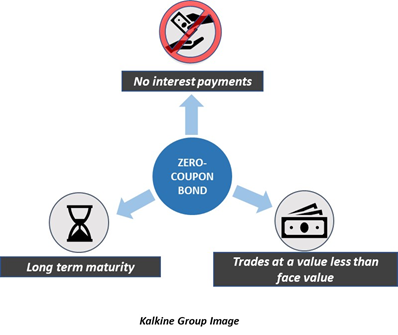




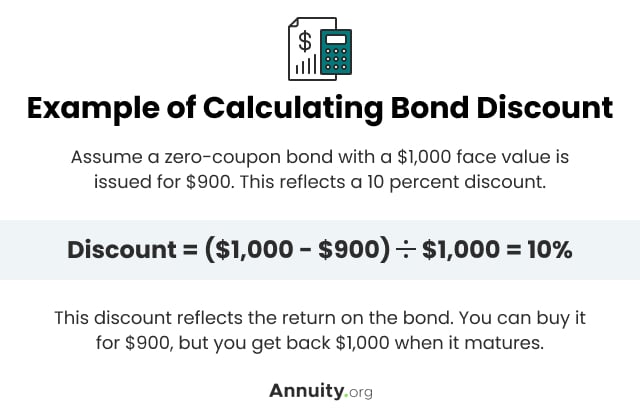







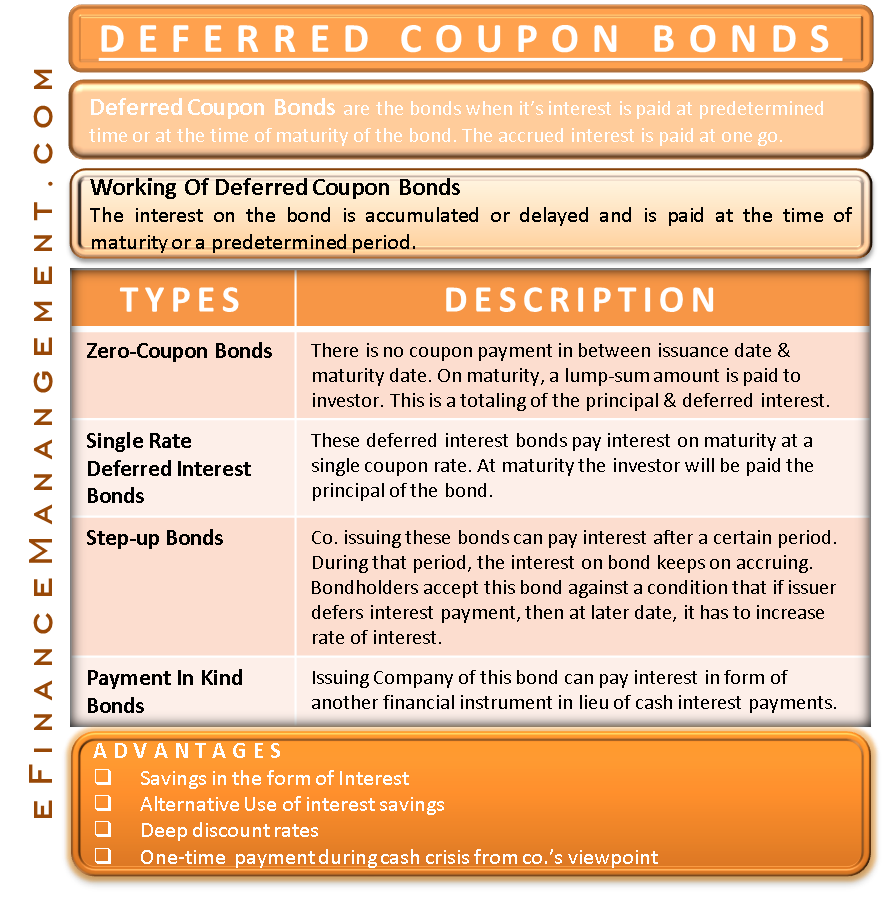



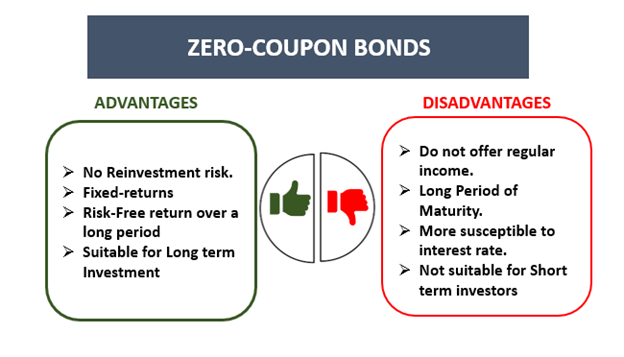
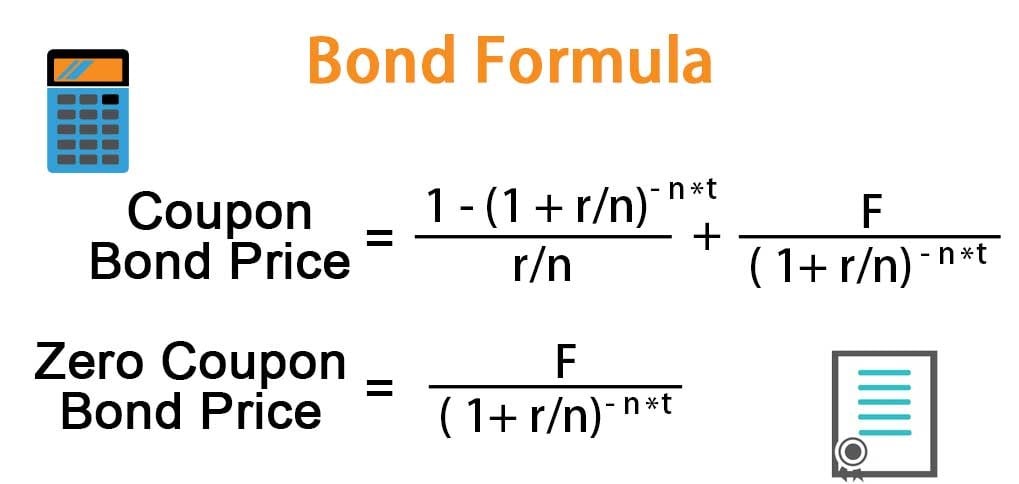




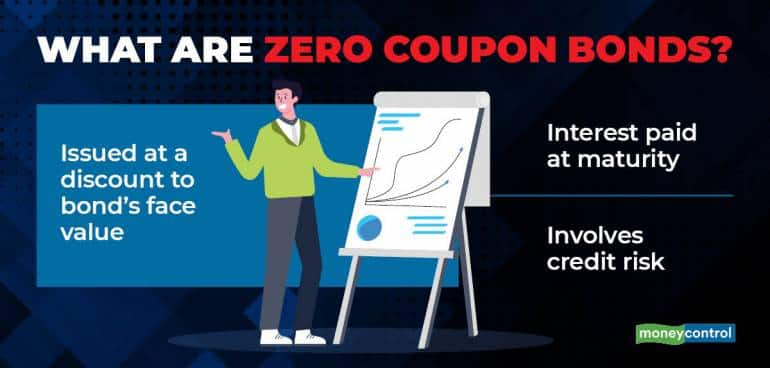






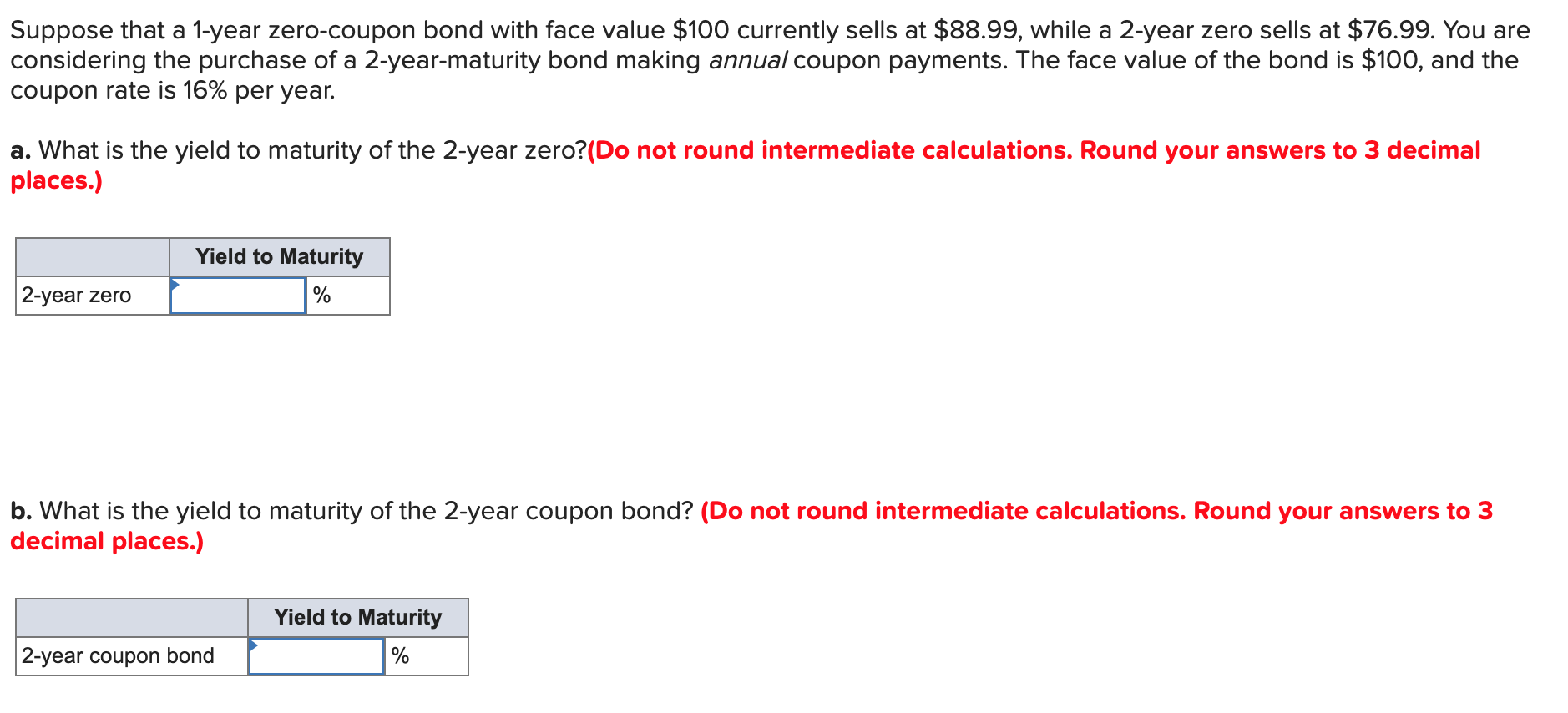
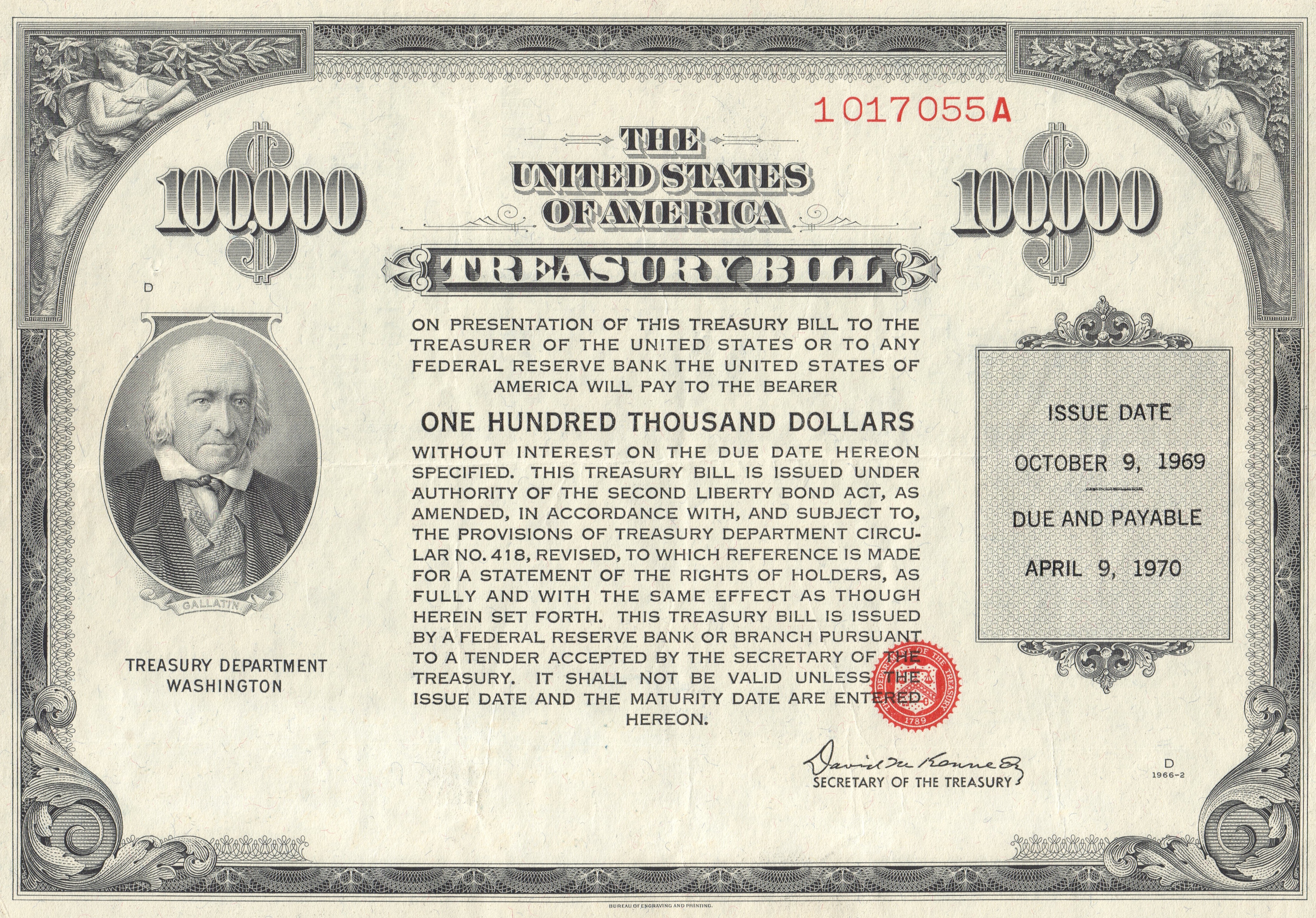
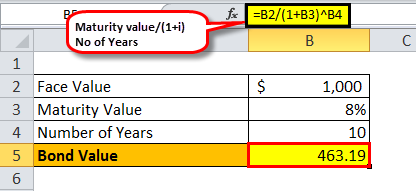



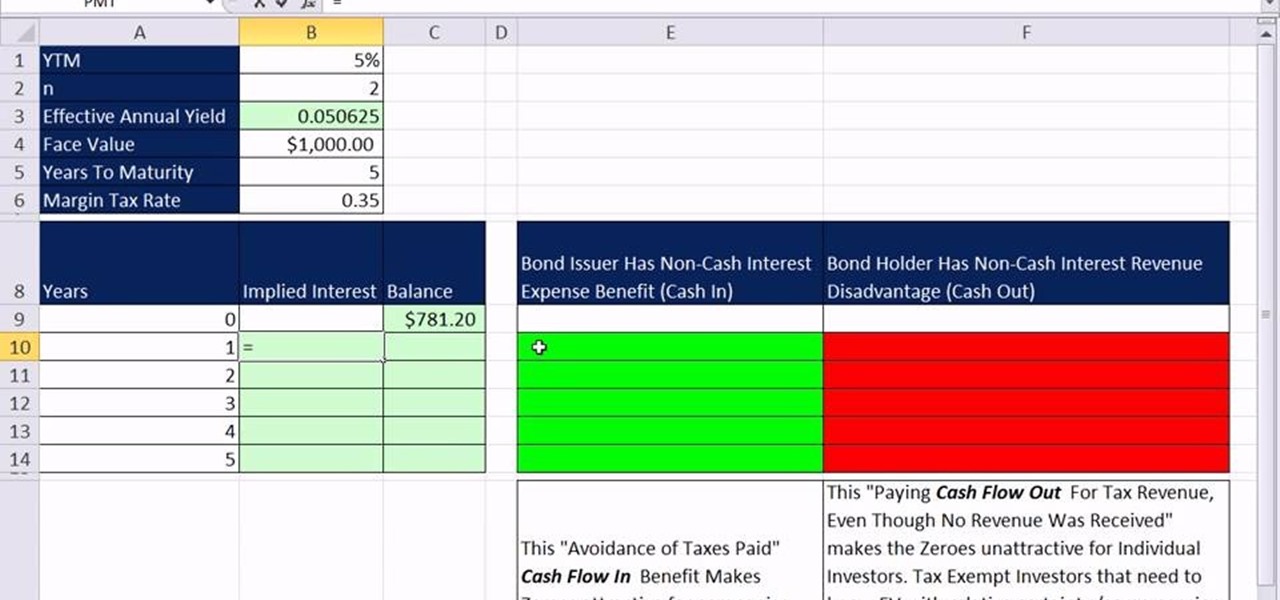
:max_bytes(150000):strip_icc()/what-are-bonds-and-how-do-they-work-3306235_V3-cc55a8d3b82d4d34a991d6cc4fa8a865.png)

Post a Comment for "45 how does zero coupon bond work"